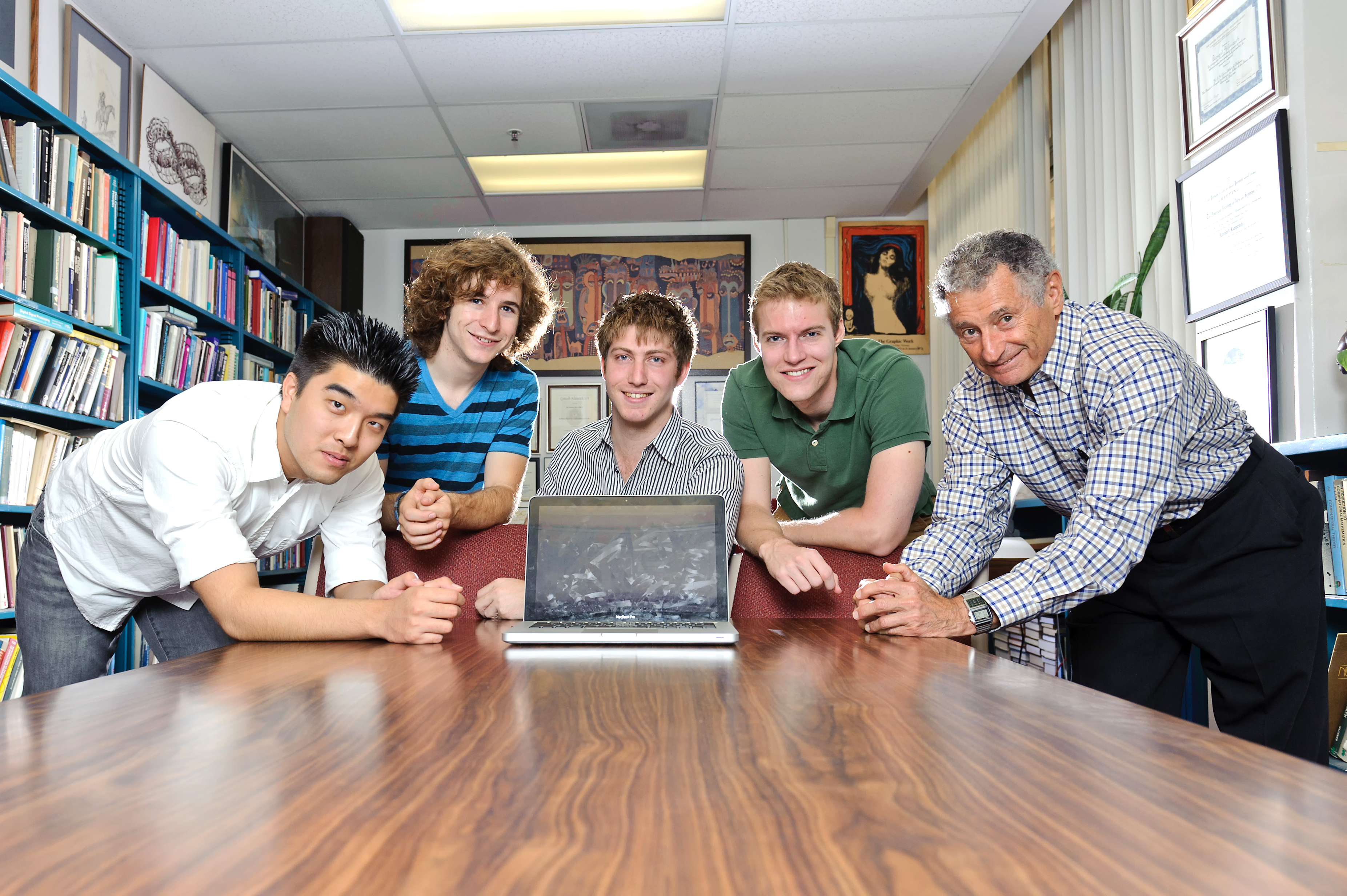When Alex Capecelatro came to UCLA from New York in 2006, he created an extreme sports club to meet others who liked BMX cycling.
But his club failed to gain popularity, so he resorted to riding outside Pauley Pavilion in his free time in the hopes of meeting someone who shared his passion.
It was not until his third year when he met Spencer Hochberg, a then-first-year mechanical engineering student and unicyclist, who approached him during one of his rides in front of Pauley.
The two, both engineering students with a passion for biking, soon developed a strong friendship.
Now Capecelatro, with the help of Hochberg, a team of mostly UCLA students and alumni and UCLA computer science Professor Leonard Kleinrock as an adviser, is trying to make it easier for students to find others who share their interests through a new social networking website.
The site, called Hyphos, differs from other social networking websites such as Facebook, Twitter and Google because users find others through personal interests and information, rather than the other way around, said Capecelatro, a UCLA alumnus who graduated with a degree in materials science and engineering.
“On Facebook, the problem is a lot of the content that gets posted you really don’t care about,” he said, “The idea with Hyphos is instead of following people and then discovering the content they post, you follow content and through that discover the people who are posting it.”
Users on Hyphos follow groups based on their hobbies and filter these groups by location to finds others who share that hobby or see related events happening in places ranging from within a 1-mile radius to across the globe, Capecelatro said.
“There is no place you can go online to find people around you based on what they’re into,” said Hochberg, who is now entering his fourth year at UCLA. “There could be someone living just a floor above you in your dorm who likes all the same things as you, but you could never meet them.”
Kleinrock, who is often noted as one of the fathers of the Internet, said Hyphos has a reasonably good chance of starting as a niche operation and catching on as the word spreads.
However, he said it will likely not be as explosive as Facebook or YouTube.
“I don’t think (people) are going to recognize its immediate value,” he said. “It’s not shallow value we’re talking about. It’s more sophisticated, which takes a while for people to recognize.”
Kleinrock said the Internet has fostered the idea of discovery and created close-knit communities whose offline lives overlap.
“Hyphos is a long overdue aspect of connectivity on the Internet, and I’m certainly happy to see it coming out,” he added.
The site is intended to help first-year college students and graduate students overcome the often overwhelming first few weeks of life at UCLA by helping them find others who share their interests, Hochberg said.
“There are so many events going on at UCLA and in the Westwood community all the time, but you don’t always hear about them or you don’t know anyone who would want to go with you,” said Suraja Raj, a UCLA alumnus who is also working on the website.
Although Hyphos is focused on students, UCLA professors and employees can also use it to interact with communities on campus, Capecelatro said.
The website is set to launch initially at UCLA during zero week. A UCLA email is required for entry, Capecelatro said.
The team plans to expand to other universities around the nation.
“Starting (Hyphos) at UCLA and other universities is the right place to do it,” Kleinrock said. “Young people are always looking for ways to meet others in their genre and with overlapping interests.”
Although Hyphos’ relevance beyond the university environment would depend on a variety of factors including an individual’s inclination, environment and age group, the idea of bringing cyberspace profiles into the real world is innovative, Kleinrock said.
“(People) are often looking for others who share their interest, and they want to express that interest with information, with enthusiasm, with questions, with affiliation,” he said.
